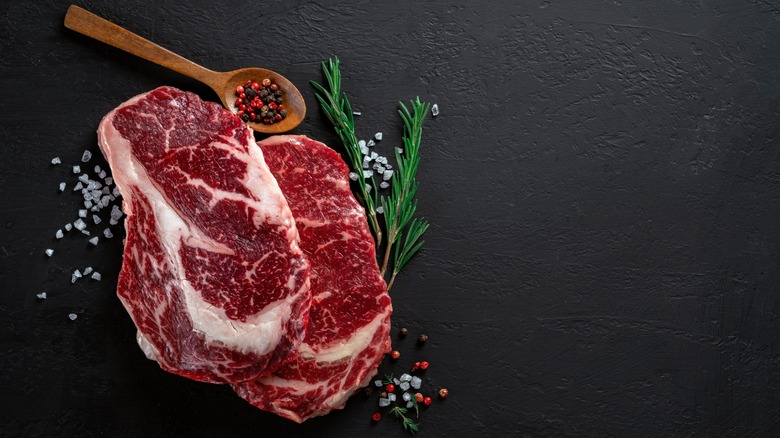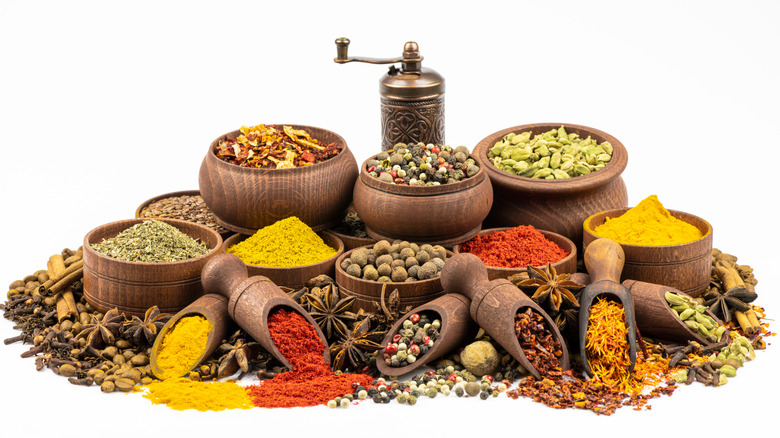When Is The Best Time To Add Spices To Steak?
Compared to chicken, pork, and lamb, steak is just different. According to The Daily Meal, it has the ability to taste rich, and buttery, and has "the presence of glutamates, which our brain interprets as the 'meaty' flavor associated with umami."
The point is that steaks are commonly associated with special events, date nights, and celebrations. Cuts like the tomahawk, filet mignon, and the porterhouse are usually ordered at steakhouses to celebrate a milestone. However, that's not to say one can't enjoy more affordable cuts within their daily life. Some of these include the strip steak, flat iron steak, sirloin cap, and flank steak, per CNET. And guess what? These are all packed with flavor and great for weeknight meals like fajitas, Mongolian beef, and steak tacos.
But whichever cut of steak you decide to work with, it's important to consider which step to add your spices. And while it's tempting to add them right before the steak hits the hot pan, we'll tell you why that's a bad idea.
Be sure to add spices after cooking to avoid burning
If black pepper and steak seasoning are your kitchen BFFs, it's best to sprinkle these on a steak after it's finished cooking, per Kitchn. Here's why: many spices are prone to burn, and burnt spices mean a burnt crust on a steak.
As Soothing Spices mentions, compared to whole spices, ground spices burn much easier, especially when introduced to high temperatures. And you know what loves to be cooked above scorching hot temperatures? Steak. In fact, Taste of Home notes that a cast-iron skillet should sit over high heat for up to five minutes, making it nice and preheated for just about any type of steak. And we'll bet many spices won't hold up well to the maximum stove settings.
An exception to this is salt, and as Firefighter Insider explains, salt needs to be at around 1,472 degrees Fahrenheit before it starts to melt. In other words, you don't have to worry about salt burning or catching fire (via Simply Called Food). So feel free to season the steak with salt prior to cooking. The Wagyu Shop also mentions that you can do this up to a day in advance, which results in a dry-brining method that makes steak very tender and moist.
So whether you're searing a porterhouse or a sirloin steak, be sure to season your meat with spices after the cooking process is all said and done.

